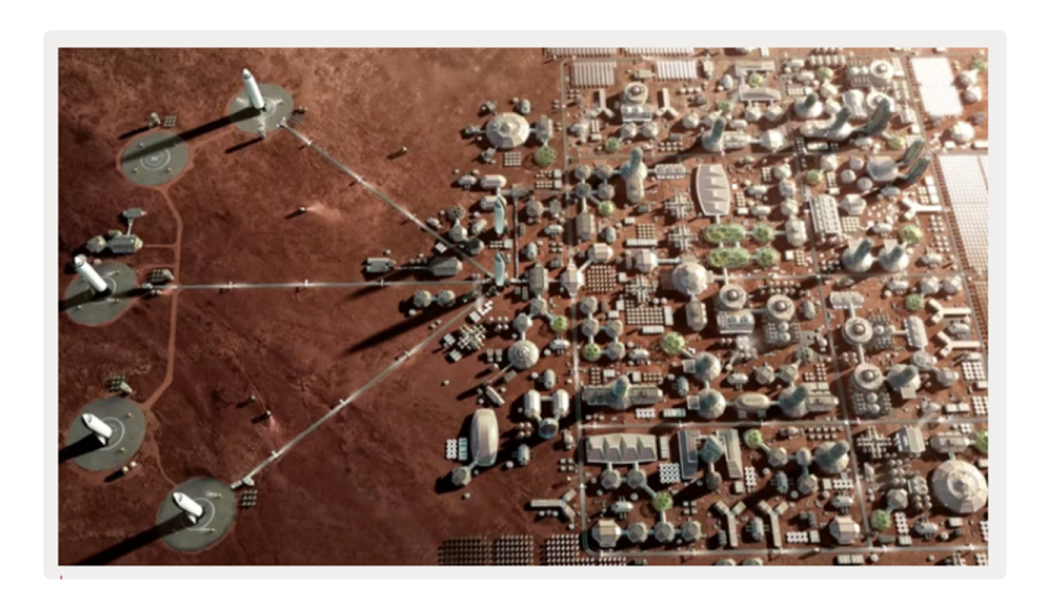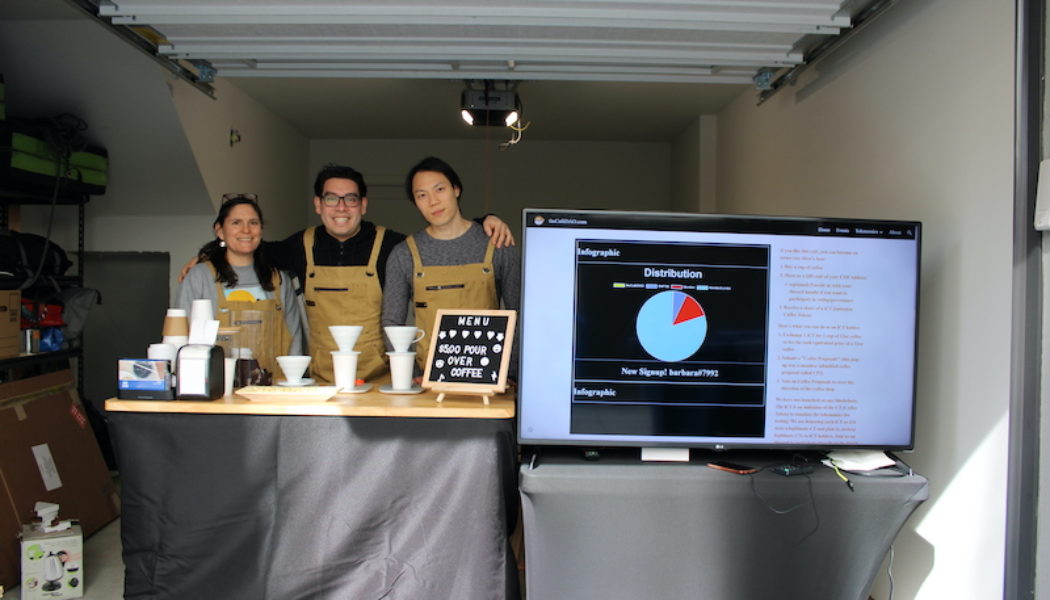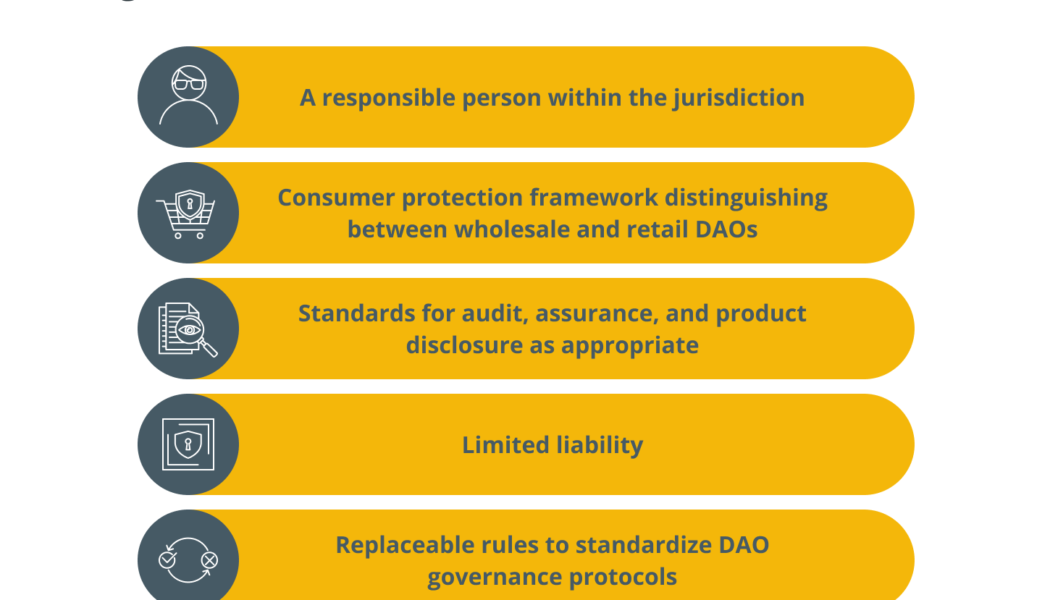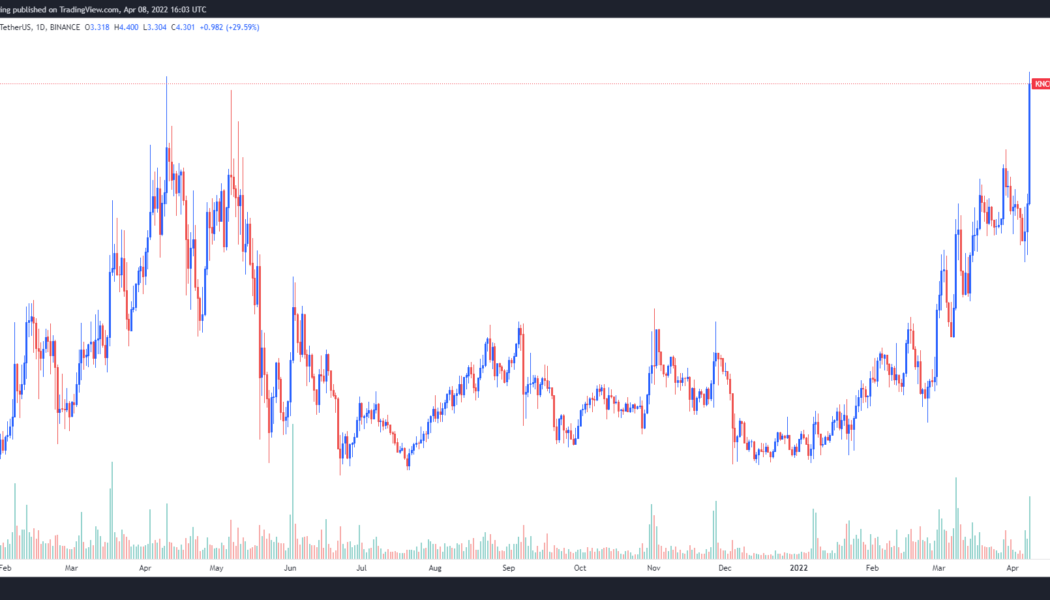Decentralization
Welcome to Mars: I own everything, have total privacy and life has never been better
This is a parody of the article published by the World Economic Forum titled “Welcome to 2030. I Own Nothing, Have No Privacy And Life Has Never Been Better.” Welcome to Mars. Welcome to my city, or should I say “our city” because I, like every other inhabitant, is a stakeholder in it. No, I don’t mean “shareholder,” as this isn’t a dystopian future run by private companies. My city on Mars has a decentralized governance structure just like the greater Mars. It is not a corporation nor is it a militarized state. It is a set of institutions governed directly by The People. As a result of this system, we have police that spread peace instead of violence. We have financial systems that spread wealth instead of creating poverty. We have institutions that are open instead of closed and transpar...
DeFi transforming lending routes on the blockchain
The world of decentralized finance (DeFi) is gradually expanding to encompass a significant share of the global financial lending space by virtue of the inherently trustless manner of operation and the ease of accessing capital. As the crypto ecosystem has grown to a $2-trillion industry by market capitalization, new products and offerings have emerged thanks to burgeoning innovation in blockchain technology. Lending and borrowing have become an integral part of the crypto ecosystem, especially with the emergence of DeFi. Lending and borrowing are one of the core offerings of the traditional financial system, and most people are familiar with the terms in the form of mortgages, student loans, etc. In traditional borrowing and lending, a lender provides a loan to a borrower and earns intere...
What are the top social tokens waiting to take off? | Find out now on The Market Report
“The Market Report” with Cointelegraph is live right now. On this week’s show, Cointelegraph’s resident experts discuss the social tokens you should be keeping a close eye on. But first, market expert Marcel Pechman carefully examines the Bitcoin (BTC) and Ether (ETH) markets. Are the current market conditions bullish or bearish? What is the outlook for the next few months? Pechman is here to break it down. Next up: the main event. Join Cointelegraph analysts Benton Yaun, Jordan Finneseth and Sam Bourgi as each makes his case for the top social token. First up, we have Bourgi with his pick of STEEM, the native token of the Steem social blockchain network, which rewards users for content creation. Its aim is to give back value to content creators who contribute on the platform. Although is ...
4-digit ENS domains spike in demand this week and continue soaring
Ethereum Name Service, or ENS, .eth domains ranging from 0000 to 9999 have recently been causing a stir among NFT investors, speculators and enthusiasts alike. Even though three- and four-digit names have been around for years, the number of people registering for ENS domains and purchasing these digit number names on secondary markets over the past week has significantly affected the market’s trading volume. According to a Dune Analytics dashboard for ENS, the spike in sales began on April 21, and the number of eth. name registrations has since jumped from 2,721 to 21,188 by April 28. Over the last seven-day period, ENS domains’ trading volume on OpenSea climbed by 3,333% to 2,613 ETH, or $7.3 million, at the time of writing. The last 48 hours have seen the most...
Internet Computer’s ORIGYN is watching the watches using NFT authentication
ORIGYN, a Swiss foundation that uses artificial intelligence (AI) to identify and authenticate objects of value, has partnered with luxury watch marketplace WatchBox. The pair will co-produce certificates of authenticity in the form of NFTs that enable customers to trade the digital ownership of a watch. ORIGYN is the largest project on the Internet Computer Protocol, or ICP, developed by The DFINITY Foundation blockchain. Individuals who purchase a collector quality timepiece via WatchBox can expect ORIGYN to certify the authenticated object thanks to its biometric technology. Each watch is given a unique biometric fingerprint and an NFT that contains all of this information is minted. These are utility NFTs that may offer customers insurance, digital provenance, con...
How Web 3.0 apps must adapt to become next-gen of tech, explained
Unlike Web 2.0 applications, offerings built on Web 3.0 are enabling users with true data ownership. Web 2.0 brought about a major change to how the world views the internet, introducing online platforms like TikTok, Twitter, Meta (former Facebook) and Instagram, among others. Although valuable in the number of opportunities made available, Web 2.0 has brought concerns about data ownership. With users spending more time online, their data, including what they like, the content they create and other details about themselves, are being shared with big tech companies, many of which have been caught in data scandals in the past and paid their way out of it. Web 3.0 addresses these concerns by presenting a new reality for application usage. Leveraging verifiable, trustless, self-governing, perm...
As labor struggle takes center stage, can DAOs democratize work?
Web3 has given rise to a number of innovative business models. In particular, decentralized autonomous organizations (DAOs) have started gaining traction as Web3 as the creator economy comes to fruition. Natalie Salemink, CEO and founder of Prismatic — a tooling and treasury management platform for DAOs — told Cointelegraph that DAOs are internet-native organizations that utilize smart contracts to facilitate coordination and governance in pursuit of a common goal. When it comes to traditional businesses, though, one of the most interesting aspects a DAO structure can provide is leadership based on computer-generated code rather than individual authority. The idea of operating a business without any central governance has become especially intriguing to brick and mortar compani...
IMF global financial stability report sees complex roles for cryptocurrency, DeFi
According to the International Monetary Fund’s Global Financial Stability report released Tuesday, the war in Ukraine — following hard on the heels of the coronavirus pandemic — has led to a tightening of global financial conditions. Rapid changes in fintech and the uses and misuses of cryptocurrency play into the jumble of challenges facing the global economy. According to the report, the pandemic and war have led to an accelerated “cryptoization” in emerging markets due to increased speculative interest during the pandemic and then attempts to evade sanctions. Given compliance within the crypto industry, the use of cryptocurrency to evade sanctions is impractical, the report found. The use of mixers, decentralized exchanges and privacy coins may allow some circumvention, but it wou...
DAO regulation in Australia: Issues and solutions, Part 3
Lawmakers in Australia want to regulate decentralized autonomous organizations (DAOs). In this three-part series, Oleksii Konashevych discusses the risks of stifling the emerging phenomenon of DAOs and possible solutions. Crypto anarchy is unlikely to be the future that the majority of people support. Company regulation, in its essence, has a lot of positive aspects or at least, a good intention, albeit one often embodied in a red tape that stifles business. Nevertheless, nowadays, corporation rules and regulations are formalized to the extent that they could be put in the machine code. So, the role of the government is to establish mandatory standards for those DAOs that would like to operate in the Australian market. [embedded content] Non-digital There are cases when a written legal tex...
What are the worst crypto mistakes to avoid in 2022? | Find out now on The Market Report
“The Market Report” with Cointelegraph is live right now. On this week’s show, Cointelegraph’s resident experts discuss the worst mistakes you should avoid making in crypto. But first, market expert Marcel Pechman carefully examines the Bitcoin (BTC) and Ether (ETH) markets. Are the current market conditions bullish or bearish? What is the outlook for the next few months? Pechman is here to break it down. Next up: the main event. Join Cointelegraph analysts Benton Yaun, Jordan Finneseth and Sam Bourgi as they talk about the worst crypto mistakes to avoid making in 2022. First up, we have Bourgi, who thinks investors should avoid “analysis paralysis.” In other words, don’t overanalyze. Make decisions based on firm conviction. Don’t just look at the price of a coin or token you’re interested...
Kyber Network (KNC) soars after integrating with Uniswap v3 and Avalanche Rush Phase 2
The outlook for projects in the decentralized finance (DeFi) sector has begun to improve in recent months as a combination of global events have highlighted the benefits of holding funds outside of the traditional financial systems. One project that has rallied over the past few months is Kyber Network (KNC), a multi-chain cryptocurrency trading and liquidity hub that aims to offer users the best trading rates. Data from Cointelegraph Markets Pro and TradingView shows that after bouncing off a low of $2.83 on April 6, the price of KNC jumped 55.4% to hit an all-time high of $4.04 on April 8 amid a 253% spike in its 24-hour trading volume. KNC/USDT 1-day chart. Source: TradingView Three reasons for the building momentum of KNC include the integration of support for ten separate blockchain n...























